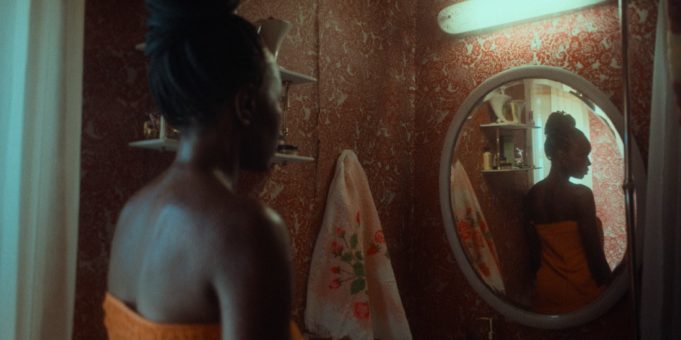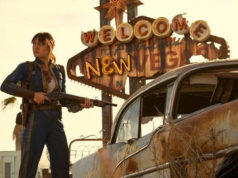They’re selling Nanny as a horror movie. It was even co-produced by horror-movie outfit Blumhouse. The winner of the Jury Prize at Sundance isn’t a horror movie, despite its supernatural elements. It’s a movie about an undocumented nanny working for rich people, and to draw audiences, a story like this needs to be dressed up as something our crowds can digest. (What that says about us is a subject for another time, but it can’t be good.) This African thriller falls somewhat short of the canon of great films about domestic workers that I mentioned in my review of Parasite, but it’s still well worth a look if you run across it at Cinépolis Euless, which is somehow the one venue playing it in Tarrant County this weekend.
Anna Diop portrays Aisha, an undocumented Senegalese former schoolteacher in New York City who has landed a job taking care of Rose (Rose Decker), the 6-year-old daughter of wealthy Manhattan couple Amy and Adam (Michelle Monaghan and Morgan Spector). Aisha’s Nigerian roommate (Princess Adenike) tells her how lucky she is to find work like this, and Rose quickly becomes devoted to her, though the kid has an unsettling habit of disappearing when Aisha turns around to do something. Aisha even finds romance with Malik (Sinqua Wells), the handsome doorman in Rose’s apartment building. Yet Amy, who’s beleaguered at work, starts to fall behind on her payments, while Adam, who’s away from home a lot, tries to kiss Aisha. The parents have nanny-cams all over the apartment, too. Under all this stress, Aisha starts having hallucinations of Lamine (Jahleel Kamara), the 6-year-old boy she left behind in West Africa. This happens around the same time she mysteriously stops receiving calls from him or from the best friend (Olamide Candide-Johnson) whom she entrusted to look after him.
First-time filmmaker Nikyatu Jusu is from Sierra Leone, and I like how she represents Aisha’s viewpoint. The culture of Black Americans is only slightly less foreign to her than that of her employers, and she really can’t relate when she sits next to a couple of Jamaican governesses at the park. Malik’s grandmother (Leslie Uggams), who has spent years living in Africa, tells Aisha about the myth of Mami Wata, the water spirit that can bestow great gifts on people and then turn on them in a moment. The old woman pointedly asks Aisha, “What do you do with your rage? Is it your superpower or your kryptonite?” Aisha’s visions of drowning and flooding — not to mention the black mold on her bedroom ceiling — borrow heavily from Hideo Nakata’s Dark Water. Are you surprised that an African filmmaker might take a cue from a Japanese movie? Fifty years ago, that would have been hard to conceive, but these days, their directors are worldly enough to absorb influences from Europe and Asia.
Ah, but Dark Water (both the original and the 2004 Hollywood remake) offers a more resonant take on motherhood and the fears it conjures up. Nanny doesn’t rise to that level, nor does it work at all as a horror film the way Netflix’s His House did. Had it done so, I might be touting it as one of the movies of the year. Still, it’s an interesting entry that might easily pass unnoticed and unwatched during its run here. It deserves better than that.
Nanny
Starring Anna Diop and Michelle Monaghan. Written and directed by Nikyatu Jusu. Rated R.












